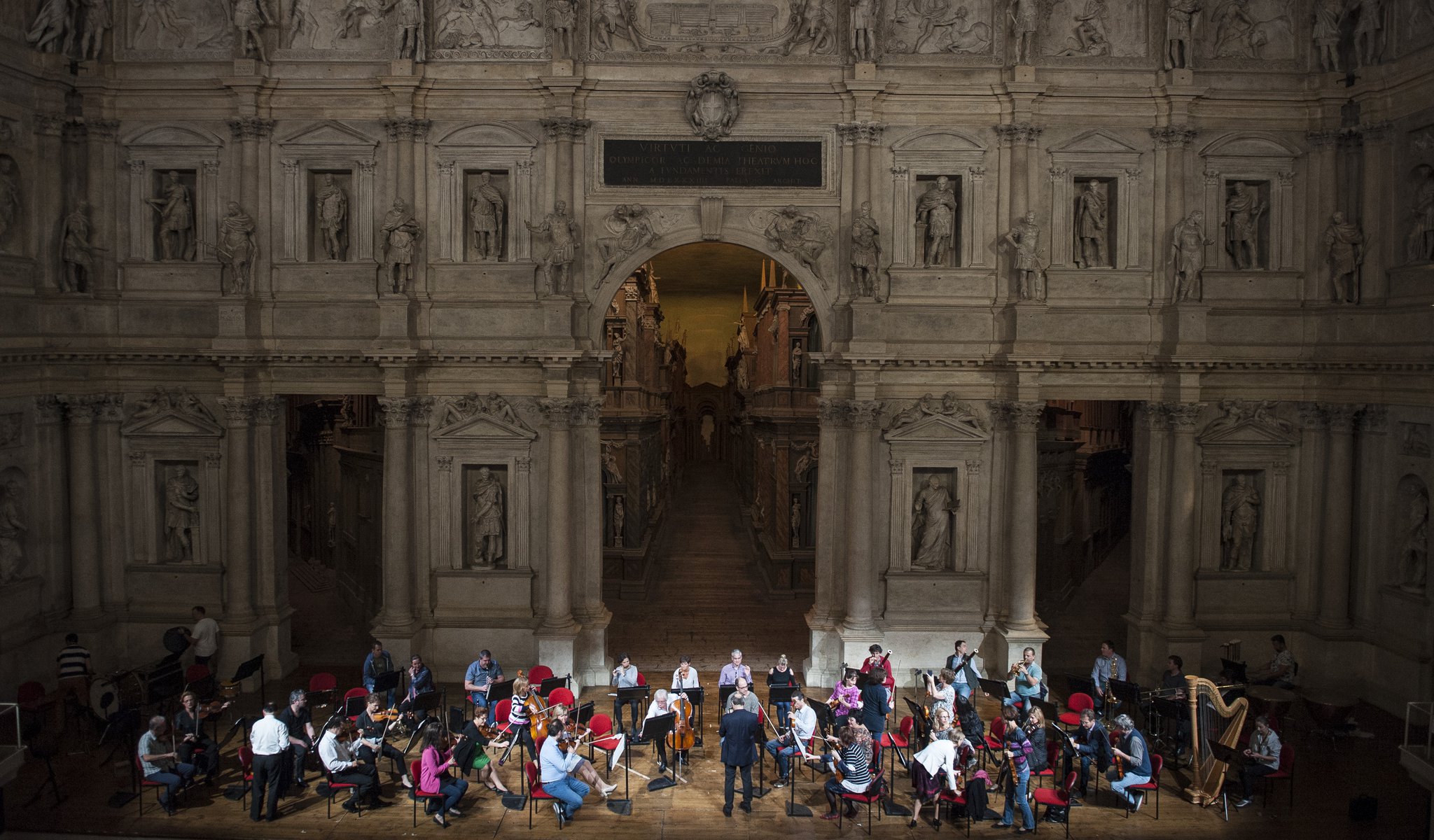
Vicenza Opera Festival: Haydn, R. Strauss
Fischer
Program
Featuring
Conductor
With
- Camilla Nylund (Ariadne)
- AJ Glueckert (Bacchus)
- Samantha Gaul (Naiad)
- Mirella Hagen (Echo)
- Olivia Vermeulen (Dryad)
Other information
The event is about 2.5 hours long.
About the event
The concert will feature a sensitive amalgamation of humor and seriousness. Haydn’s final symphony composed in London did not belie its composer, known for his occasional flippancy in music, while at the same time summarizing what Haydn had learned about the genre in a form even more complex than usual. Strauss’s opera Ariadne auf Naxos presents an intriguing dichotomy resulting from the solemnity of the mythological subject and the burlesque character of commedia dell’arte. The excerpts are performed by Emily Magee, described by the New York Times as a “richly resonant soprano,” and Roberto Saccà, one of the congenial performers of the role of Bacchus.
“The new symphony in D major is the last I’ve composed for England,” Haydn wrote in his journal in 1795, perhaps suspecting that this might have been his final symphony, which encapsulates his entire life. And, as László Somfai puts it, “there was nowhere higher for him to climb in terms of precision and quality in the genre of symphonic music.” The piece premiered at a concert featuring only music by Haydn, with the composer conducting – a true finale for the second tour in London. The first movement linking the slow introduction and fast main section, the uncluttered middle movements and the finale featuring a Croatian folk song with horn accompaniment are a fitting conclusion to the most important part of the composer’s oeuvre.
Ariadne’s aria to be performed after the intermission opens with the lines “There is a realm where all is pure: It also has a name: Realm of Death”. After the initial gloom, she is longing amidst almost cheery and playful melodies for Hermes, the messenger of death to deliver her from her grief. The lovesick Cretan princess, stranded on the island of Naxos, is then discovered by Zerbinetta and her gang of (even by mythological standards) misfits. The odd combination of genres is explained in the first act of the opera, the Prologue. It takes place in the home of a rich Viennese gentleman, who decides that the opera and the comedy commissioned for a fancy party need to be performed at the same time. The libretto for the opera (employing a stage within a stage) was written by Hugo von Hofmannsthal, who transformed his own adaptation of Molière’s The Bourgeois Gentleman into a libretto for Strauss’ sixth opera. It ends with the magnificent and glorious union of Ariadne and Bacchus, god of ecstasy, offering a number of orchestral tuttis.